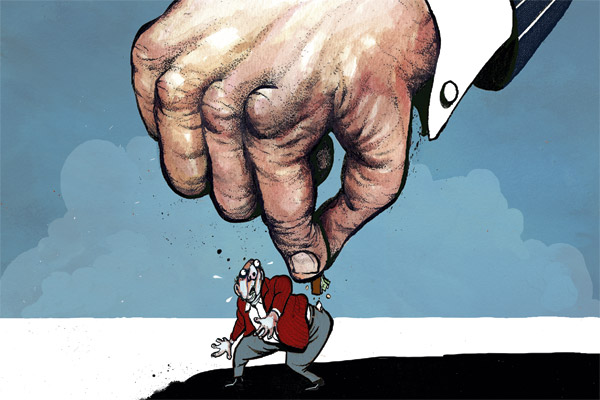There are many reasons that the fate of Cyprus is being followed so closely in Britain. One is sympathy for those who are about to pay the price for the sins of a banking sector that was at one point seven times the size of the island’s economy. Another is shock at how the island, to which Britain granted independence just 53 years ago, now finds itself caught between Berlin, Moscow and Brussels. But the real lesson of Cyprus can be applied closer to home: when governments run out of money, they come after other people’s. Everyone is looking at Cyprus and asking: how safe are my savings?
In Cyprus, at least, when the government decides to help itself to people’s savings, it’s called theft. In Britain, it’s called ‘quantitative easing’. It may have been shocking for Cypriots to wake up and find the government proposing to steal 6.75 per cent of their savings — but at least the ploy was declared in advance, then defeated in parliament. The new idea — seizing about a third of accounts worth more than €100,000 — is similarly transparent, albeit still shocking. But in Britain, though no one likes to admit it, the state purloins the wealth of its citizens to an extent which makes the deal that Cypriots rejected look quite mild. It just does it less conspicuously.
It’s all down to the games played with interest rates, and a policy — QE — which sounds so mind-numbingly dull that you may be tempted to stop reading as soon as you encounter the letters. John Maynard Keynes had an apt description for what is happening. ‘By a continuing process of inflation, governments can confiscate, secretly and unobserved, an important part of the wealth of their citizens,’ he wrote. ‘The process … does it in a manner which not one man in a million is able to diagnose.







Comments
Join the debate for just £1 a month
Be part of the conversation with other Spectator readers by getting your first three months for £3.
UNLOCK ACCESS Just £1 a monthAlready a subscriber? Log in